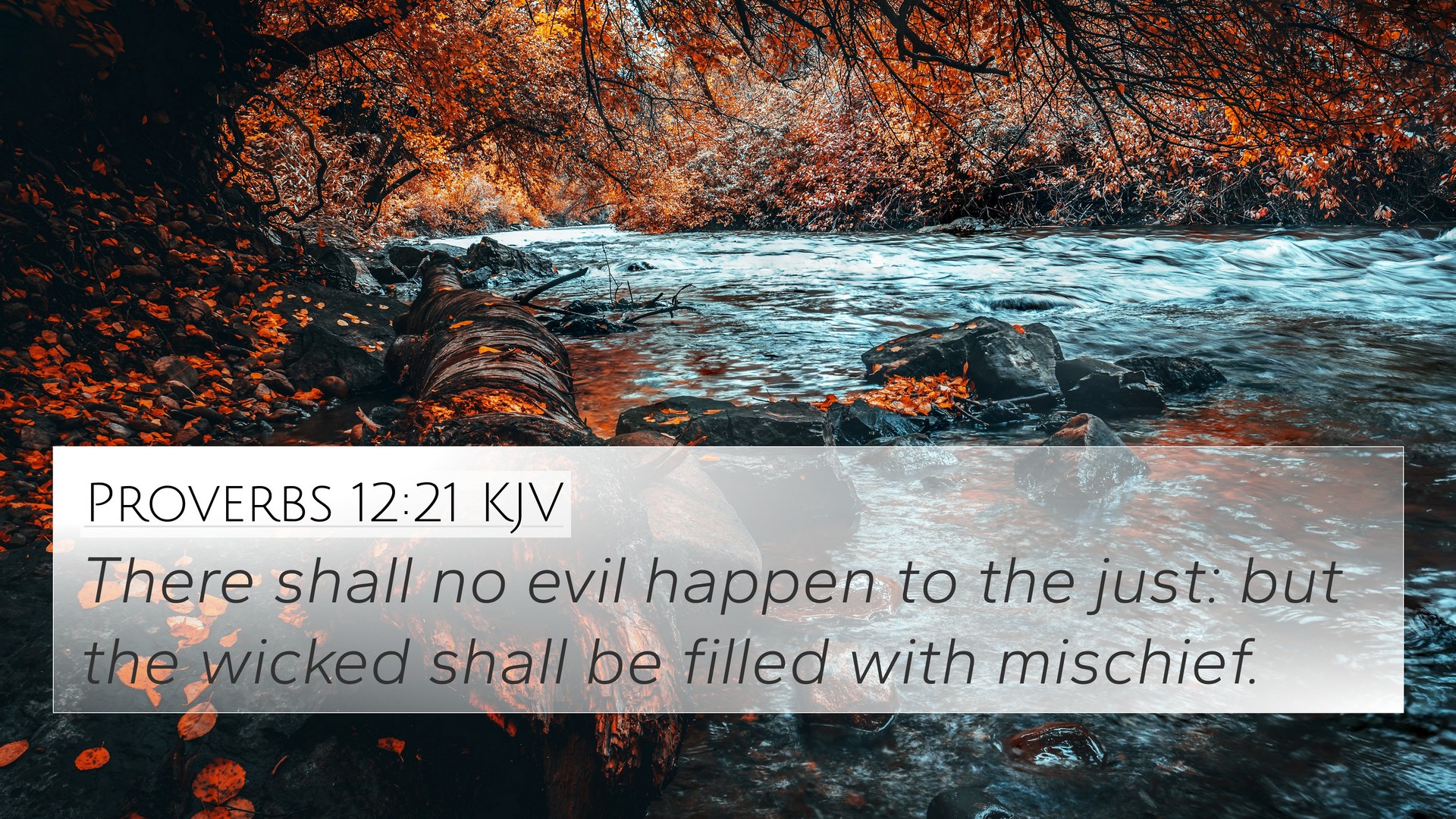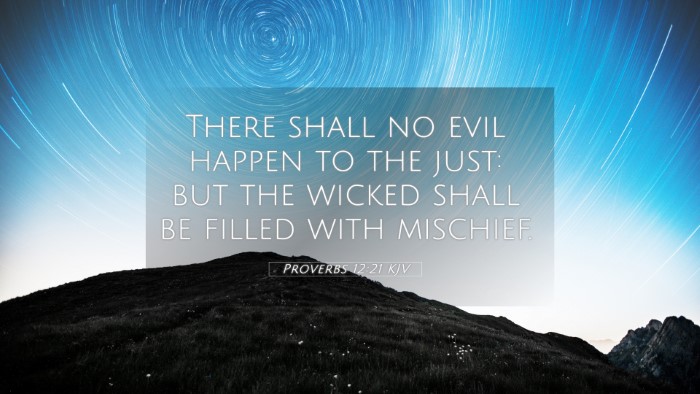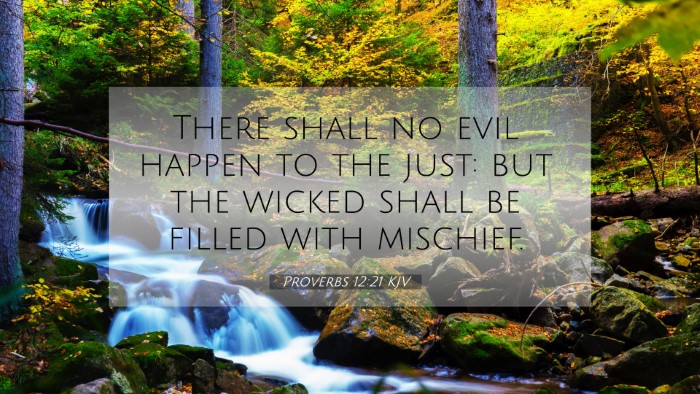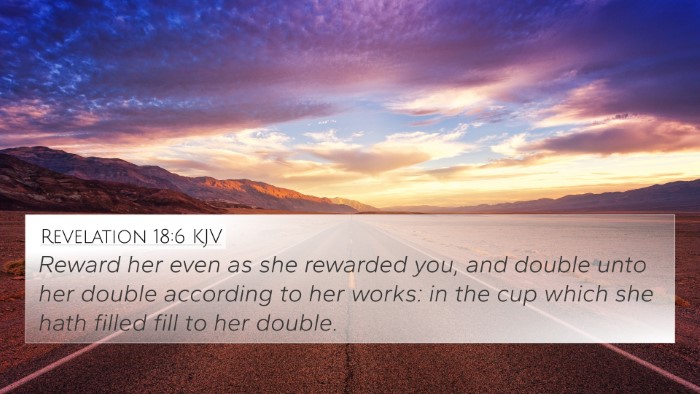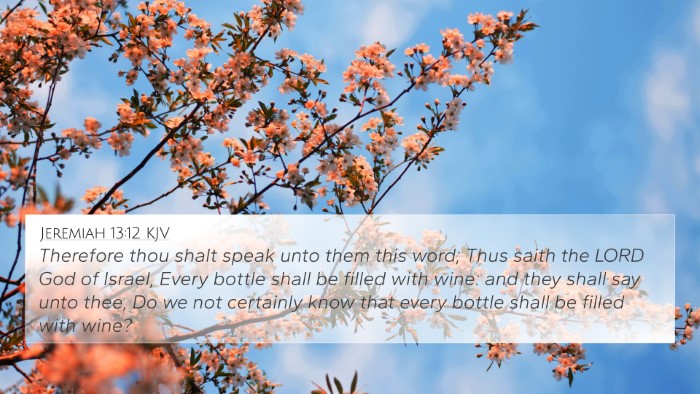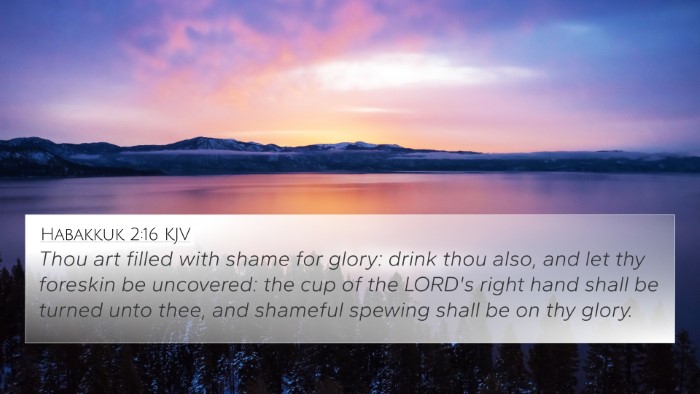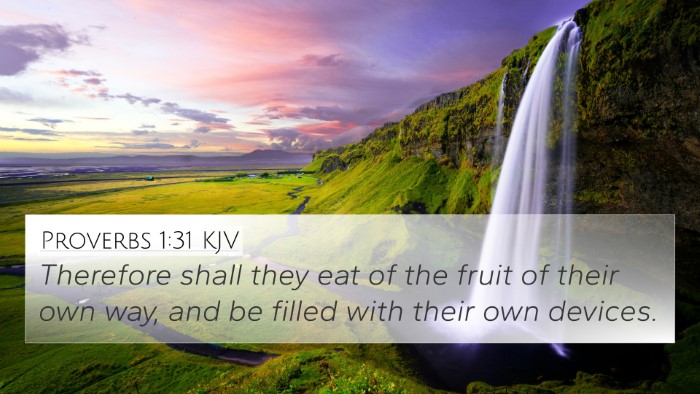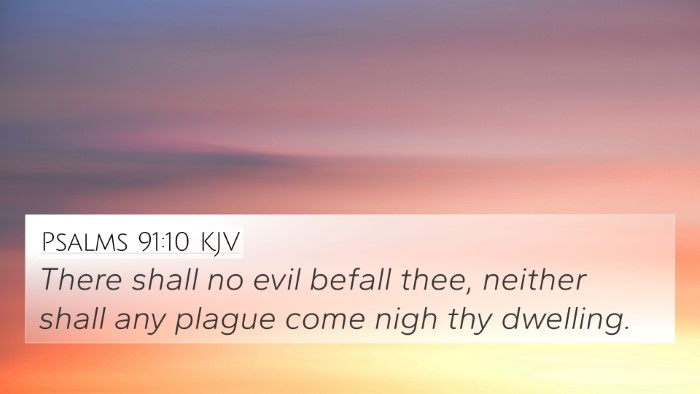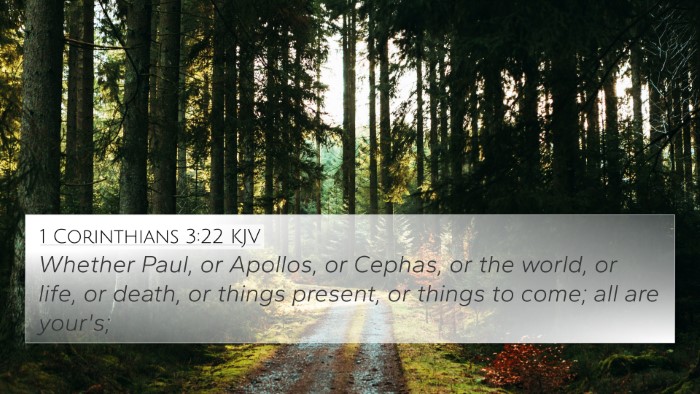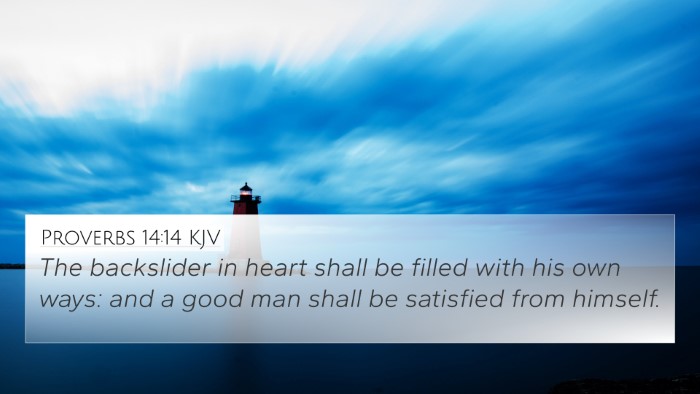Understanding Proverbs 12:21
Proverbs 12:21 states, "There shall no evil happen to the just: but the wicked shall be filled with mischief."
This verse highlights a fundamental biblical principle that underscores the distinction between the righteous and the wicked. Below is an exploration of its meaning, connections to other scriptures, and insights from revered public domain commentaries.
Verse Meaning and Insights
This proverb assures that those who live justly will not face evil as an inevitable fate, while those who are wicked will ultimately face their own harm. Let's delve deeper into the interpretations drawn from notable commentaries:
-
Matthew Henry:
Henry articulates that true righteousness safeguards individuals from misfortunes that commonly befall the wicked. He emphasizes that just individuals may face trials, but divine protection undergirds their integrity, leading to eventual vindication.
-
Albert Barnes:
Barnes elucidates that the absence of evil for the just does not imply a carefree existence. Instead, it reflects a divine assurance that God’s justice prevails, ultimately shielding the innocent from lasting harm.
-
Adam Clarke:
Clarke points out that the verse contrasts the outcomes of righteous living with the destructive paths of the wicked. He subtly indicates that, while the righteous may endure pressures, their faith and moral standing lead to liberty from condemnation.
Cross-References and Thematic Connections
Proverbs 12:21 serves as a pivotal illustration of justice and its implications throughout the scriptures. Here are some related verses that enhance its meaning through inter-Biblical dialogue:
- Psalm 34:21: "Evil shall slay the wicked: and they that hate the righteous shall be desolate."
- Proverbs 11:8: "The righteous is delivered out of trouble, and the wicked cometh in his stead."
- Isaiah 3:10-11: “Say ye to the righteous, that it shall be well with him: for they shall eat the fruit of their doings. Woe unto the wicked! it shall be ill with him: for the reward of his hands shall be given him.”
- Romans 8:28: "And we know that all things work together for good to them that love God, to them who are the called according to his purpose."
- Galatians 6:7: "Be not deceived; God is not mocked: for whatsoever a man soweth, that shall he also reap."
- John 10:10: "The thief cometh not, but for to steal, and to kill, and to destroy: I am come that they might have life, and that they might have it more abundantly."
- 1 Peter 3:12: "For the eyes of the Lord are over the righteous, and his ears are open unto their prayers: but the face of the Lord is against them that do evil."
- 2 Peter 2:9: "The Lord knoweth how to deliver the godly out of temptations, and to reserve the unjust unto the day of judgment to be punished."
Thematic Exploration
The theme of divine justice illustrated in Proverbs 12:21 can be further investigated through various Bible cross-referencing tools:
- Bible Cross-reference Guide: Utilize guides for comparisons between righteous living and the judgments meted upon the wicked.
- Bible Concordance: Employ a concordance to locate scriptures that echo the concepts of divine protection and the consequences of wrongdoing.
- Bible Chain References: Create chains of thoughts connecting verses that abstractly share themes of justice and moral fate.
- Cross-reference Bible Study: Engage in studies that exploit connections between scriptures regarding the nature of good and evil.
- Identifying Connections: Discover links between Old and New Testament teachings regarding righteousness and justice.
- Comparative Study: Analyze Pauline epistles in conjunction with Old Testament wisdom literature.
Conclusion
In summary, Proverbs 12:21 stands as an affirmation of the protective guidance afforded to the just while serving as a warning to the wicked. By delving into related scriptures and utilizing effective cross-referencing methods, one can gain a comprehensive understanding of the biblical narrative surrounding justice, righteousness, and the ultimate consequences of one's actions.
